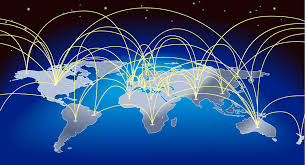EFFECTS OF TRADE POLICIES ON NATIONAL ECONOMIES
Introduction: Trade policies play a vital role in shaping the economic landscape of nations. Governments implement trade policies to regulate imports, exports, and foreign investments, aiming to protect domestic industries, boost economic growth, and ensure fair competition. These policies can have both positive and negative effects on national economies. In this article, we will explore the various impacts of trade policies on countries and analyze their implications.
- Economic Growth: Trade policies can significantly influence a nation’s economic growth. By opening up to international trade, countries can access larger markets, increase exports, and stimulate economic activity. This can lead to enhanced productivity, technological advancements, and increased investment in domestic industries. However, protectionist policies that impose high tariffs or quotas on imports may hinder economic growth by reducing market access and stifling competition.
- Employment and Wages: Trade policies can have direct consequences on employment and wages within a country. When trade barriers are reduced, domestic industries face competition from foreign firms, which may result in job losses, particularly in sectors that cannot compete globally. Conversely, trade liberalization can create new employment opportunities, as businesses expand due to increased export demand. Moreover, by facilitating the import of intermediate goods and raw materials at lower costs, trade policies can reduce production costs, which may positively impact wages and consumer prices.
- Industry Competitiveness: Trade policies can shape the competitiveness of domestic industries. Protectionist measures, such as tariffs and subsidies, aim to shield domestic producers from foreign competition. While this may offer short-term advantages, it can impede the long-term competitiveness of industries by limiting their exposure to global market forces. Conversely, free trade policies promote competition and encourage domestic industries to innovate, adapt, and improve their efficiency to remain competitive in the international arena.
- Consumer Welfare: The impact of trade policies on consumer welfare is significant. Free trade policies often result in a wider variety of goods and services available at competitive prices, benefiting consumers through greater choices and affordability. Conversely, protectionist measures can lead to higher prices for imported goods, limited options, and reduced quality due to a lack of foreign competition. Striking a balance between protecting domestic industries and ensuring consumer welfare is a crucial consideration in trade policy formulation.
- Income Distribution: Trade policies can affect income distribution within a country. Liberalization can lead to a reallocation of resources, causing shifts in employment and income distribution. Industries that become more competitive due to trade liberalization may experience growth, resulting in increased employment opportunities and higher wages. However, sectors that are unable to compete globally may face challenges, leading to job losses and income disparities. Governments must address these concerns through social safety nets and targeted policies to mitigate the negative effects on vulnerable populations.
Conclusion: Trade policies wield a considerable influence on national economies, shaping economic growth, employment, industry competitiveness, consumer welfare, and income distribution. While protectionist measures may provide short-term benefits to domestic industries, they can hinder long-term competitiveness and limit consumer choices. On the other hand, free trade policies can foster economic growth, enhance consumer welfare, and promote innovation but may lead to job displacements and income disparities. Striking a balance between protecting domestic industries and embracing the benefits of international trade is crucial for policymakers to ensure sustainable economic development and welfare for their nations.



